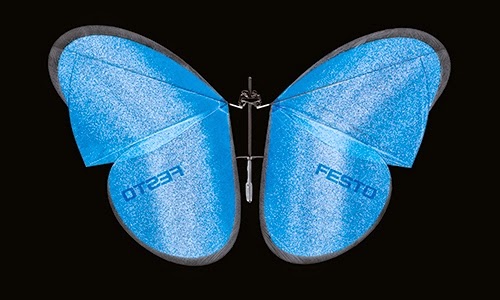Research efforts into minitaurization, practical adaptation of nature's tactics and functional integration with technology by the Bionic Learning Network will be showcased. The research network links German electronics company Festo to universities, institutes, development companies and private inventors as they seek creative solutions and test new technologies and production methods.
BionicANTs borrow not just from the physical characteristics of ants, but the design also incorporates many of the behavioral features of the highly social insects. The insect-inspired devices are slightly over 5 inches long and weigh just over 1 ounce each.
The artificial ants are created on a 3D printer, forming both the basic structure of the device and electrical connections in a single pass. Each artificial ant is equipped with a small video camera, providing a sense of "sight" for the robotic insects. The robotic insects recharge their internal batteries by placing their antennae against a charging station.
Autonomous Networking Technologies (ANTs) carry out collective activities in much the same ways as their counterparts in the natural world. The ants use a wireless signal to communicate with each other to carry out their tasks.
eMotionButterflies also use a similar system to carry out social activities, including collective flying. These ultralight flying objects take to the air inside a specially designed room, where 10 infrared cameras detect the position and movement of the artificial butterflies. This information is relayed to a central computer, which coordinates motions of the devices.
"The eMotionButterflies impress with an intelligently employed mechanical system and the smallest possible power units in the tightest space. The reduced use of materials enables the true-to-nature flying behavior," Festo managers reported on the company website.""
Bionic Creations:






No comments:
Post a Comment